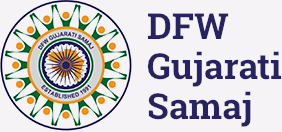Ad Details
-
Ad ID: 1695
-
Added: February 3, 2021
-
Location: United States
-
State: Michigan
-
Views: 338
-
Website: http://www.akkaonline.org/
Description
AKKA stands for ‘Association of Kannada Kootas of America’.
AKKA is a non-profit, Educational, Linguistic and Cultural Organization; incorporated under Non Profit Corporation act of the State of Florida, to integrate, coordinate, network and unite the activities of all Kannadigas and Kannada Kootas for promotion and preservation of Kannada language and culture in North America. AKKA’s constituent units include executive committee, Board of Trustees and Board of Directors from all the regions of U.S.A. and Canada.
AKKA was born in February 1998, at the World Kannada Sammelana-98 held in USA at Phoenix, Arizona. A group of prominent Kannadigas who believed in the need for a central organization were selected from across the country and formed a steering committee. This committee elected the office bearers of AKKA and the constitution was drafted.
The 1st AKKA World Millennium Kannada Conference was held in Houston, Texas hosted by Kannada Vrinda of Houston in the year 2000. More than 2000 people attended this conference, one of the most talked about events. AKKA became a household word both in USA, Canada & Karnataka and became a symbol of pride for Kannadigas everywhere. In recognition of AKKA’s successful efforts in promoting Kannada arts and culture in North America, the Government of Karnataka conferred the Rajyothsava Award to AKKA in December 2001. Currently, 30 Kannada Kootas (representing 60,000 Kannadigas) across North America are members of AKKA organization.
The 2nd AKKA World Kannada Conference was held in Detroit, Michigan in 2002 hosted by Pampa Kannada Koota which scaled AKKA to greater heights, with more than 4000 Kannadigas attending the conference. The momentum generated by the gathering and networking of such large number of Kannadigas in Detroit carried onto Orlando, Florida. In 2004, Srigandha Kannada Koota hosted the 3rd AKKA World Kannada Conference. TThe 4th AKKA World Kannada Conference was held in Baltimore, Maryland in 2006 hosted by Kaveri Kannada Association which is the most profitable AKKA convention 5th convention was hosted by Vidyaranya Kannada Kuta, Chicago, Illinois, 6th convention hosted by Karnataka Cultural Organization – Brindavana (KCOB), New Jersey, and 7th convention hosted by Nrupathunga Kannada Koota (NKK), one of the oldest Kannada Koota in the US.
8th AKKA World Kannnada conference will be hosted by the biggest Kannada Koota in the US and one of the most energetic and active Kannada Koota of Northern California (KKNC).The conference will be held at San Francisco Bay Area during Aug 29, 30 and 31st 2014.
AKKA is also actively involved in various charitable work in Karnataka by organizing many fundraising programs throughout North America.
We sincerely request and urge you to show your support by becoming members and contribute in any way you can, in this endeavor.
Download the AKKA Constitution
Preamble
The Kannada speaking people living in the United States of America and Canada, assembled at the Kannada Sammelana in Phoenix on February 13-15, 1998, have resolved to establish a central organization named “Association of Kannada Kootas of America (AKKA)”, to integrate, coordinate, network and unite the activities of all Kannadigas and Kannada Kootas in North America for the promotion and preservation of Kannada language and culture.
Article I. Names and Definitions
• The name of this organization in the English language shall be:
• “Association of Kannada Kootas of America (AKKA)”
• The name of the organization in the Kannada language shall be: “America Kannada Kootagala Agara (AKKA)”
• AKKA shall mean the Association of Kannada Kootas of America
• Agara shall mean an abode or a dwelling or a place of rich resource or a mine or Kanaja (grain storage area) or getting together
• Karnataka shall mean the present state of Karnataka in India and/or its other boundaries in history.
• Kannada shall mean the language identified as one of the national languages of India which is the official language of the State of Karnataka, the mother tongue of the people of Karnataka State, in India and other parts of the world.
• Kannadiga shall mean a person whose mother tongue is Kannada or whose ancestors’ mother tongue was Kannada or a person who identifies with Kannada language and culture for his/her heritage.
• Koota(s) shall mean a Kannada Koota(s), Sangha(s) or Association(s)
• The Logo for AKKA shall be the one initially designed with “AKKA” inscribed inside the north American map and the kannada text ” Elladaru Iru, Entadaru Iru, Endendigu Ni Kannadavagiru” around it.
• The words ” Kannada Koota” in the name AKKA, was selected instead of “Kannadigas” in “Association of Kannadigas of America (AKA)”, for the great emotional significance it generates in Kannadigas and also because one of the main aims of AKKA is to coordinate and work with all the Kannada Kootas of North America.
Article II. Mission and Objectives
AKKA is a non profit, secular, educational, linguistic, charitable, and cultural organization, incorporated under the non-profit corporation act of the State of Florida to accomplish the aims and objectives set forth below.
• Section 1. To protect, maintain, preserve and promote the interests, heritage, language, culture and history of Kannadigas residing in North America. Promote establishing a Kannada Chair in one of the prestigious universities in the USA.
• Section 2. To enlist all Kannada Kootas in North America to become members of AKKA as partners in the above endeavor.
• Section 3. To act as the focal point for coordinating in the field of Industry, trade, commerce and culture between the government of Karnataka and Kannadigas in North America, specifically for Kannada artists to come and perform in North America every year for Sammelanas and for the anniversary jubilee celebrations of Kootas in North America.
• Section 4. To encourage the young generation of the kannadigas in North America to participate in the activities of AKKA by forming a youth wing of young Kannadigas.
• Section 5. To establish a program of total immersion course(s) in Karnataka for teaching Kannada language and culture during the summer for young children and students from North America and for non Kannadigas who are making their home in Karnataka.
• Section 6. To provide easy access for buying Kannada books by establishing an electronic database of all Kannada books, so that they can be ordered and shipped directly from Karnataka.
• Section 7. To establish forums for exchange of information among Kannadigas for helping each other in setting up businesses, industries and educational institutions.
• Section 8. To promote assistance to rural villages in modernizing cultivation, improving their standards of living and education and set up scholarships for poor rural area students.
• Section 9. To promote a Kannada Sammelana at least every two years initially and every year if feasible and to invite leading Kannadigas representing all segments of Kannada population in Karnataka for the Sammelanas and lecture tours in North America. AKKA will authorize a Kannada Koota or a group of Kannadigas from a region of USA or Canada that volunteers to host the Sammelana. A Memorandum of Understanding (MOU) must be in place before awarding the conference to the Koota or group of Kannadigas.
• Section 10. To encourage Kannadigas to participate actively in all Indian organizations in North America, contribute to the growth and recognition of Indians in North America.
• Section 11. To make a concerted effort to invite our American brothers and sisters from the European, African American, Hispanic and other ethnic communities to join us in all our cultural programs and enjoy sharing our language and culture. Accomplishing this will be very crucial to the welfare, progress and prosperity of our progeny.
• Section 12. To establish “Kannada Bhavan” in the USA to promote trade, commercial and cultural relationships between the government of Karnataka and the government of USA and the various state governments. This should be a shared effort between the government of Karnataka and the Kannadigas in North America. The financial and operational details of the project to be studied by a committee set up by AKKA and suitable recommendations made to the government of Karnataka.
• Section 13. To provide help and assistance to Kannadigas arriving in the USA by providing financial assistance and scholarships to the needy students and help in job search and other areas including immigration to the extent possible.
• Section 14. To work in close collaboration with organizations formed in North America which comprise a large body of Kannadigas and actively seek the participation of their members and encourage them to participate in the activities of AKKA and local Kannada Kootas.
• Section 15. Register AKKA as a not for profit organization in India with a bank account to do financial transactions and to carry charitable work.
Article III. Membership
Membership in the Association shall be open to all who are desirous of furthering the objectives of AKKA, regardless of color, creed, nationality or sex. Membership shall remain in effect as long as the member abides by the Constitution and remains in good standing, having paid all current dues as set out in the By-laws.
Section 1. Types of Membership
Membership consists of two types:
a. CHARTER member
A charter member is a registered non profit Kannada Koota consisting of mostly Kannadigas and who contribute to the objectives as AKKA.
b. General membership
i. A GRAND PATRON member is an institution or an individual
ii. A PATRON member is an institution or an individual
iii. A LIFE member is an individual or family
iv. BIENNIAL member is an individual or family
v. HONORARY member is a Kannadiga individual or Corporation, who is nominated by the Board of Directors and or Trustees.
vi. Organizational member is an institution that supports the missions and objectives of AKKA.
Section 2. Eligibility for Membership
a. All Kannada Kootas consisting of Kannadigas who support the constitution of AKKA and who have a minimum of 50 individual members or 25 family members, are eligible for Charter membership of AKKA by paying a one time donation as set out in by-laws.
b. Once a Charter Member is admitted to AKKA, the Charter Membership is a Lifetime Membership and cannot be revoked. The number of Charter Members may increase, but shall never decrease.
c. Any individual who supports the constitution and by-laws of AKKA and is 18 years or older and of sound mind is eligible for membership.
Section 3. Disqualification and re-admission of Membership Rights.
a. Disqualification of Membership Rights:
Documented activities against the purposes of the organization shall constitute grounds for disqualification from membership by the board of Trustees. The allegations shall be communicated to the member by the board of Trustees through registered mail or by email or by FAX. The alleged member shall then be entitled to a hearing before the Board of Trustees on such charges and shall be entitled to an opportunity to be heard, provided the alleged member requests in writing by certified mail or by email or by FAX. Such hearing shall be within sixty (60) days from the receipt of the notification and the board shall grant the member due process.
b. Readmission of member.
An organization or individual who has lost the membership under the above provisions may be reinstated under the following provisions:
i. The member has provided adequate documents of reformation to abide by AKKA’s Constitution.
ii. The Board of Directors recommend to the Board of Trustees, the reinstatement of the member.
iii. The Board of Trustees to decide the reinstatement of the member by a majority vote.
Section 4. Voting Rights
a. Each member (except the honorary members) shall be entitled to one vote on each matter submitted to a vote by the members, provided he/she is a member of AKKA in good standing.
b. Voting by proxy or in absentia shall not be permitted.
c. Candidates for the Board of Trustees and for the position of Directors shall be present during the election to be eligible to contest unless exempted by a simple majority of the voting members present at the General Body meeting and the candidate has given his consent in writing for his/her candidature.
Section 5. Notice of General Body or Special meetings.
Written or printed notice stating the venue, date and time of any meeting of the members and in case of a special meeting, the purpose or purposes for which the meeting is called, shall be delivered by the secretary either personally, by media, by FAX/ mail/email, to each member entitled to vote at such Meetings, not less than twenty one (21) days nor more than sixty (60) days prior to the date of such a meeting. If mailed, such notice(s) shall be deemed delivered when deposited in the United States mail, addressed to the member at his/her address as it appears in the records of AKKA.
Section 6. Quorum
a. Meeting of the General Body.
Ten (10%) percent of the membership, who are entitled to vote at a meeting of the general body shall constitute a quorum for the transaction of business at that meeting, regardless of whether the vote is taken in person, by mail or fax. A majority decision shall be binding.
b. All Other Meetings.
The 1/3rd of the membership, who are entitled to vote at the meeting of the Board of Directors, Board of Trustees, executive committee, and committee meetings, shall constitute a quorum for the transaction of business at that meeting, regardless of whether the vote is taken in person, by mail, email, fax, or teleconference. A majority decision shall be binding.
Article IV. Constituent Units
AKKA shall have the following constituent units:
• Board of Trustees (BOT)
• Board of Directors (BOD)
• Executive Committee (EC)
• Special Committees
a. Board of Trustees
The role of the Board of Trustees is to observe the functioning of the activities of AKKA and suggest constructive measures needed. The board of Trustees shall advise the operating policies of AKKA in conformation with the Missions and Objectives described in Article II to the Board of Directors of AKKA.
Section 1. Number, tenure and qualification
• The total number of Trustees shall be limited to thirteen, all of whom shall be members of AKKA and shall have voting rights. These members shall include:
• The three current office bearers of AKKA, President, Secretary and Treasurer for the full term of their office.
• Three immediate past Chairmen of the Board of Trustees
• Three immediate past presidents of AKKA
• Three members nominated by the President of AKKA, including one from Karnataka.
• The Director of Kannada and Culture, Government of Karnataka.
• The Trustees shall elect a Chairman from among themselves for a term of two years.
• The general body shall elect a distinguished member of AKKA to the position of chairman emeritus. Once elected, any changes will require two thirds majority of entire AKKA membership.
Section 2. Meetings of Trustees
The Board of Trustees shall meet at least once a year. A majority of the trustees shall constitute the quorum.
Meetings could be held as conference calls over the phone or in person.
b. Board of Directors
Section 1. Eligibility
In order to serve and run for a position on the Board of Director, he/she must be a Life Member of AKKA.
Section 2. Composition
The ratio between the Charter Member Directors to the Directors elected by AKKA General Membership shall be maintained approximately 60:40 respectively at all times. The ratio is based on the number of Charter Members admitted to AKKA regardless of whether the Charter Member chooses to appoint and designate a Director. The number of Directors elected from the General Membership shall never be less than 21, but may increase if additional Charter Members are admitted and eligible to participate.
The Board of Directors is responsible for the operation and management of the affairs of AKKA. On policy matters a majority decision of the Board of Directors shall be binding on the organization. Each Charter Member shall have the right and shall be entitled to designate and appoint an individual to the Board of Directors. Each Charter Member shall submit the name and address of the appointed Director in writing to the President at least 30 days prior to the date the election commences or the date requiring a vote or participation. The designated Director representing the Charter Member shall have the right to vote and participate, but is not required to do so for purposes of maintaining any required ratio.
Election of Executive committee:
The Executive Committee consists of the President, Vice President, Secretary, Joint Secretary, Treasurer and Joint Treasurer elected from among the Board of Directors. The executive committee is responsible for all the routine activities of AKKA. The members of the Executive Committee shall be from the current members of the Board of Directors. The President, Secretary and Treasurer shall not be elected from amongst Kannada koota Presidents/representatives. Should there be an unfilled position after the elections process, the President shall have the authority to appoint a life member of AKKA for that position.
Election Disputes:
In case any disputes related to AKKA elections, the disputing parties must bring the matter to the Board of Directors and make very effort to resolve the issues before pursuing legal avenues.
Terms of Office and Duties:
The Directors elected by the General Membership are elected for a term of four years or until his or her successor is elected and qualified, whichever occurs later. If the election is delayed or extended for any reason or the election cannot be held due to unavoidable circumstances, the term will continue until their respective successors are chosen. The Directors from Charter Member Kannada Kootas can serve only for the period for a maximum four (4) year term provided the subsequent president nominates him/her to continue as his Koota representative.
The term of office for an Officer shall be a period of two (2) years or until his or her successor is elected and qualified, whichever occurs later. If the election is delayed or extended for any reason or the election cannot be held due to unavoidable circumstances, the term will continue until their respective successors are chosen.
a. The elections to the Board of Directors from the membership at large is held every two years, each time electing approximately half of the total number of Directors to be elected.
b. The term of all the office bearers is two (2) years or until his or her successor is elected and qualified, whichever occurs later. No office bearer shall serve more than two consecutive terms in the same office or four consecutive terms in a combination of offices.
c. There shall be a gap of two (2) terms from the previous term of office, before one who previously has served two terms in the same office or four terms in a combination of offices earlier can become an office bearer again.
Replacement:
In the case of resignation, removal or vacancy for whatever reason of a Trustee, Director or Officer, the Board of Directors shall have the discretion to select and appoint a person to replace the position for the remainder of the term.
President:
The President shall be the principal executive officer of the organization and shall preside over the meeting of the board of directors. The president shall be responsible for operating the organization within the policies prescribed by the board of directors. The president shall perform all duties as may be required or prescribed from time to time by the Board of Directors, provided they conform to the Mission and Objectives of AKKA. The President, his/her designee or the Secretary will be the spokesperson for AKKA.
Vice Presidents:
There shall be three Vice Presidents elected by the Board Of Directors, each with specific responsibilities assigned by the President. In the absence of the President, the designated Vice President shall perform all the duties and shall exercise all the powers of the President. In the absence of the President and the Vice President, the Secretary shall perform and exercise the duties of the President.
Secretary:
The Secretary shall be the custodian of the AKKA seal and the official records and shall keep accurate records of the minutes of the meetings, maintain a list of names, telephones and addresses of active members, send out notices of meetings and membership dues to members. The secretary shall communicate with the membership in writing to keep the members informed of the activities of AKKA and shall perform such additional duties as may be required from time to time by the Board of Directors. The Secretary is responsible for receiving of all incoming mail of AKKA and shall maintain a file copy and distribute the originals to the party to whom it was addressed.
Joint Secretaries:
There shall be two joint secretaries assisting the secretary. The Joint Secretaries shall assist in performing the duties incidental to the office of the Secretary and such other duties required from time to time. In the absence of the Secretary, the designated joint secretary shall function as the Secretary.
Treasurer:
The Treasurer shall hold the funds of AKKA in an account approved by the Board of Directors, disburse the funds according to the decisions made by the executive committee or board of Directors. The treasurer shall keep accurate records of all receipts and expenses, submit a report at each meeting of the Board to keep them informed of the financial status of AKKA and prepare an annual budget. All checks issued by AKKA shall have signatures of any two of the following office bearers:
The Treasurer, President, Secretary.
Joint treasurers:
There shall be two joint treasurers assisting the Treasurer. The Joint Treasurer shall assist the Treasurer in performing the duties incidental to the office of the Treasurer. In the absence of the Treasurer, the Joint Treasurer designated shall function as Treasurer.
Section 2. Authorities and duties
a. The affairs of AKKA shall be managed by the Board of Directors.
b. Conduct, arrange and/or coordinate biennial conferences in cooperation with local Kootas or group of Kannadigas.
c. Date and place of the conference shall be planned in consultation with regional Kootas and announced two years in advance.
Section 3. Qualification and Tenure limits
a. The director shall have a working knowledge of Kannada
b. The term of office of each Elected Director will be four years. Regardless of the period served during a term, a person can serve a maximum of two consecutive terms after which there shall be a gap of one term (four years) before a person can run again for a Director’s position.
c. Committees: The Board of Directors shall have the right to designate special committees for specific tasks with a time frame or on a permanent basis. In all cases the committees are responsible for the Executive committee.
Article V: Finance-
Section 1. Purpose
a. AKKA is empowered to acquire, take and hold, by grant, bequest, devise, gift, purchase, exchange or lease, either absolutely or in trust, for or in connection with any of its objects and purposes, any property, real, personal or mixed; to sell or convey and dispose of any such property and to invest and reinvest the principal thereof, and to deal with and expend the income for any of the aforementioned purposes.
b. AKKA is authorized to receive grants from any individual or organization to administer any specific purpose aforementioned or any purpose agreed upon by AKKA to pursue.
c. The President of AKKA is empowered to spend the amount authorized by the Board from time to time.
d. Once a budget has been approved by the board, the executive or any of the committees in charge of such activities shall have the right to make commitments to that extant only.
e. After completion of each Sammelana, any funds remaining after the expenses shall be distributed as specified in the Memorandum of Understanding (a requirement per Section 9 in Article II)
Section 2. Raising Funds
a. AKKA shall arrange fund raising activities such as conducting drama festivals, musical concerts or any other type of cultural programs.
b. Money so obtained, after paying for all expenditure shall be deposited into the Reserve Fund.
c. The fund raising activities shall be arranged at different locations in cooperation and coordination with local organizations.
Section 3. Payments
a. All funds of AKKA shall be deposited from time to time to the credit of the AKKA in such banks, trust companies or other depositories as the Board of Directors may select.
b. All checks, drafts or money orders for the payment of money shall have signatures of any of the following office bearers of AKKA: Treasurer, President and Secretary.
c. The Treasurer shall be kept informed of the details of the checks issued if he is not one of the signatories.
d. The Board of Directors is empowered to revise the annual dues of individual members and/or member organizations if required.
e. The treasurer shall furnish a copy of the bank statements and details of deposits to the Secretary.
Article VI: Special Committees
Section 1. Purpose
a) Committee(s) may be formed by the Board of Directors with a mandate to address specific issue(s) and report to the Board.
Section 2. Composition
a. The chairperson of the Committee is selected by the president from among the Directors or other members of AKKA in good standing. The president in consultation with the chairman selects the members of the committee.
b. The members of the committees shall be selected from among the presidents of various organizations or members of AKKA.
c. There shall be at least one member of the Board of Director on each of these committees to keep the board informed on the progress of the special committee.
Article VII. Amendments
Amendments to any of the provisions of this constitution requires approval by a two thirds (2/3) majority of the voting at a meeting of the general body. The membership shall be informed of the proposed amendments and the methodology adopted regarding the vote on the amendment at least thirty (30) days prior to the vote.
Article VIII. Dissolution
Proposal for the dissolution of AKKA shall originate only by means of a written request addressed to the Secretary sent by mail, email or fax by a simple majority of the membership. The Secretary shall convene a meeting to discuss the dissolution of AKKA not less than one month and not more than two months after the receipt of the written request. For the purpose of this meeting the presence of a simple majority of the annual membership shall constitute Quorum. The dissolution requires approval by a two thirds majority of all the members of AKKA present and voting at the meeting.
For the purpose of dissolution, the assets of AKKA shall be distributed as determined by the general membership to an organization or Organizations organized and operated exclusively for charitable, educational, religious, or scientific purposes as shall at the time qualify as an exempt organization or an organization under section 501(C)(3) of the Internal Revenue Code of 1954 or later version.
Article IX: Indemnification:
Each person who is or was a party, or is threatened to be made a party, to any threatened, pending or completed action, suit or proceeding, whether civil, administrative, or investigative, whether or not brought by or in the right of the AKKA and
a. Who is or was a director of AKKA
b. Who is or was an agent or employee of AKKA other than an officer to whom AKKA has agreed to grant indemnity: or
c. Who is or was serving at the request of AKKA in the position of the Director, Trustee, committee member or chairperson
Shall be indemnified by the AKKA as of right to the fullest extent permitted by the law, unless such person is finally adjudged to have been grossly negligent, or to constitute a willful misconduct against the purposes of AKKA, against any fine, judgment, liability, amounts paid in the settlement, cost or expense, including attorney fees, suit or proceeding, including any appeal thereof, and in his/her capacity as director, officer or representative.
Any person who has been disciplined by AKKA at any time shall not be eligible for this indemnity benefit. The Board of Directors may authorize purchase and maintenance of the indemnity insurance of directors, officers, committee members and chairpersons.
By-Laws of AKKA
Section 1. Rules
The latest edition of Robert’s Rules of Order shall be the authority on all questions of procedure not specifically stated by this Constitution and By Laws.
Section 2. Membership dues
Section 3. Board of Directors meetings
The Board of Directors shall meet at least once in every six months. The meeting venue, time and location shall be convened by the Secretary, who shall notify the members at least 7 days before the meeting. The coordinator of each special committee should present a report of its activities as required. Telephone conference call meetings would be the most economical way for most of these meetings in view of the thousands of miles separating many members.
Regular contact between members of the Board of Directors shall be maintained through regular mail, e-mail as well as through telephone.
Telephone conference calls may be arranged as and when required between the members at the expense of AKKA.
In case of emergency, when immediate action is required to be taken by AKKA, the President and the Secretary shall take action on behalf of the Board of Directors and such actions shall be ratified at the next regular meeting of the Board of Directors.
Section 4. Amendments to By Laws
These By laws must be adhered to in performing the activities of AKKA.
These By Laws may be altered or amended by the Board of Directors with a two-third (2/3) majority of the board present, provided notice of the proposed amendment shall have been sent at least thirty days prior to the annual meeting. Such amendments shall be notified to the members and member organizations.
Association of Kannada Kootas of America (AKKA)
America Kannada Kootagala Agara (AKKA)
(A Not for Profit Cultural organization)
By-Laws of AKKA per CONSTITUTION-1999
Not changed in the amendments
Section 1. Rules
The latest edition of Robert’s Rules of Order shall be the authority on all questions of procedure not specifically stated by this Constitution and By Laws.
Section 2. Membership dues
• A CHARTER MEMBER is a Kannada Koota that becomes a member by making a one time donation of $100.00
• A GRAND PATRON member is an institution, family or individual who makes a donation of $5,000.00 or more
• A PATRON member is an institution, family or individual who makes a donation of $1,000.00 or more
• A DONOR member is an institution, family or individual who makes a donation of $500.00 or more
• A FAMILY LIFE member bestows membership for immediate family members by a donation of $250.00 or more
• An INDIVIDUAL LIFE member is an individual who makes a donation of $200 or more
• A BIENNIAL member is an individual who makes a donation of $25.00 or more once every two years. The two year period starts on the day of receiving donation and up to two calendar years, For Eg, A member joining on 16-Oct-2009 shall have membership rights until 15-Oct-2011. Due to nature of this clarification one time exception is accepted for members who took membership before December 2008 shall have membership valid until December 2010.
• A BIENNIAL FAMILY member is for two family members by a donation of $50.00 or more once every two years. The two year period starts on the day of receiving donation and up to two calendar years, For Eg, A member joining on 16-Oct-2009 shall have membership rights until 15-Oct-2011, Due to nature of this clarification one time exception is accepted for members who took membership before December 2008 shall have membership valid until December 2010
Section 3. Board of Directors meetings
a. The Board of Directors shall meet at least once in every six months. The meeting venue, time and location shall be convened by the Secretary, who shall notify the members at least 7 days before the meeting. The coordinator of each special committee should present a report of it’s activities as required. Telephone conference call meetings would be the most economical way for most of these meetings in view of the thousands of miles separating many members.
b. Regular contact between members of the Board of Directors shall be maintained through regular mail, e-mail as well as through telephone.
c. Telephone conference calls may be arranged as and when required between the members at the expense of AKKA.
d. In case of emergency, when immediate action is required to be taken by AKKA, the President and the Secretary shall take action on behalf of the Board of Directors and such actions shall be ratified at the next regular meeting of the Board of Directors.
Section 4. Amendments to By Laws
a. These By laws must be adhered to in performing the activities of AKKA.
b. These By Laws may be altered or amended by the Board of Directors with a two-third (2/3) majority of the board present, provided notice of the proposed amendment shall have been sent at least thirty days prior to the annual meeting. Such amendments shall be notified to the members and member organizations.
Section 5. Election Process Handling
a. Elections for the positions mentioned in Article IV of the AKKA constitution shall be held by an outside agency that is approved by board of directors after reviewing agency credentials
b. The executive committee is responsible for handling all communications regarding elections
c. Election of board of directors shall be held on during the month of October and shall be complete before 2nd Sunday of November during the election year
d. Election process to elect for executive committee positions as mentioned in Article IV of the AKKA constitution shall start as early as 2nd Sunday of December during election year and a new committee shall take charge on 2nd Sunday of January, the following year.
e. In the event that the executive committee fails to execute election process as per these recommended dates, the Trustees shall make an arrangement to use services of external agency at AKKA’s expense
Section 6. Communication handling with general body members
a. Executive committee shall use email as the preferred way to communicate with general body members
b. Email information should be collected along with membership request
c. Information communication may be include and not limited to, communication regarding elections, meeting notices, discussions on by-law and other constitution amendment information.

































Leave a Comment
Your email address will not be published. Required fields are marked. *